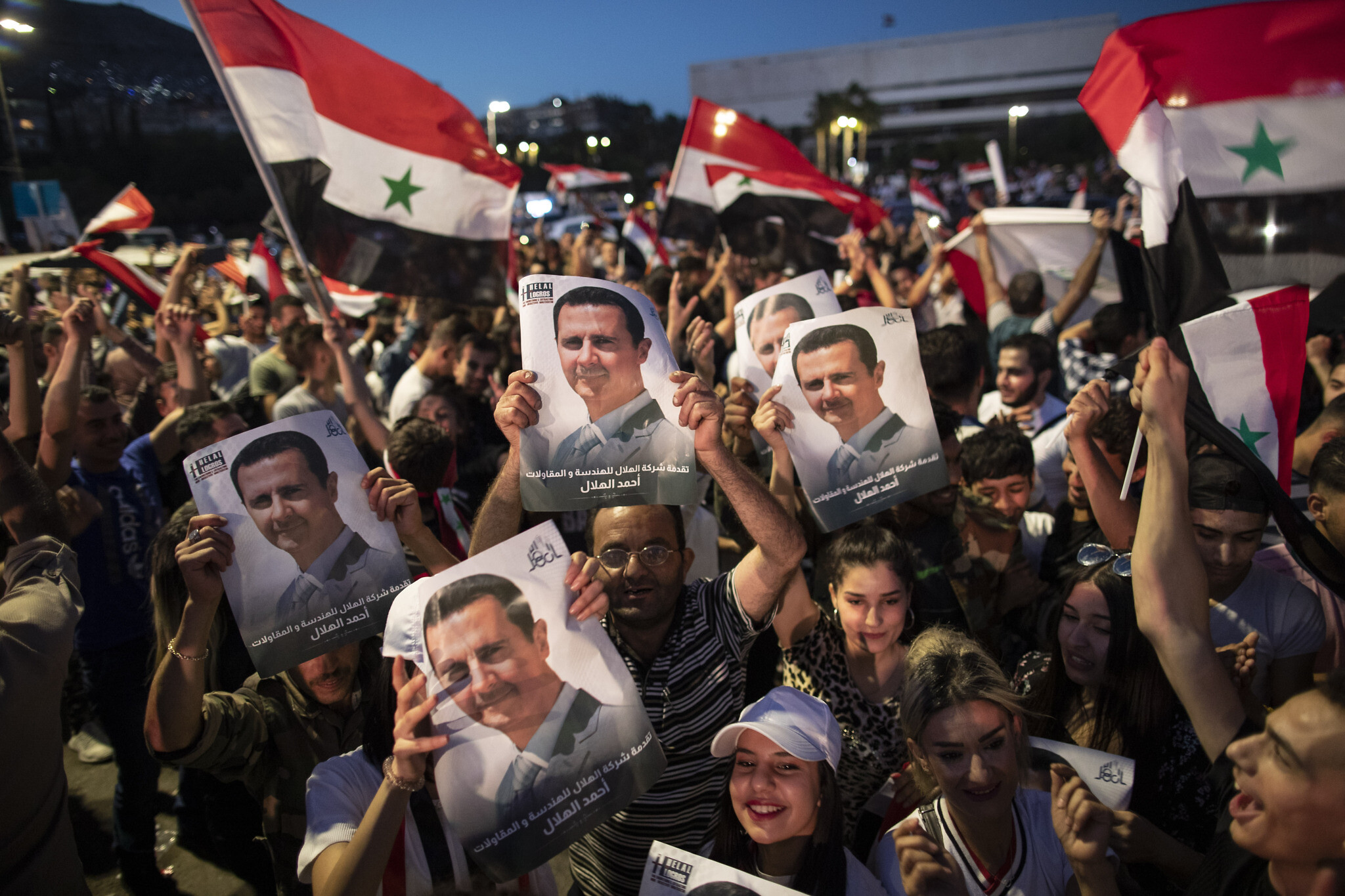By Dr. Majid Rafizadeh
The Iranian regime is expanding its presence in Syria and increasing its military, financial and advisory assistance to militia groups there in order to preserve one of its top national security interests.
Tehran’s increasing influence in Syria can particularly be seen in the eastern part of the Arab state. On the military side, according to the Washington Post: “Iran has been playing the long game in Deir Ezzor, successfully recruiting local Syrians to allied militias, providing services the deeply distrusted government cannot deliver and putting down roots in a strategic province that could further Tehran’s regional interests even after the Syrian civil war eventually ends and Iran’s support for President Bashar Assad is no longer as vital.”
To more effectively infiltrate and control Syria, the Islamic Republic has also been building and opening schools and attempting to convert some Sunni mosques into Shiite ones. Some of Iran’s leaders even think of Syria as part of Iran. For example, Mehdi Taeb, a confidant of Supreme Leader Ali Khamenei, said Syria is Iran’s “35th province… if we lose Syria we won’t be able to hold Tehran.”
From the perspective of the Iranian regime, Syria is of great strategic importance as it is the crux of Tehran’s regional hegemonic strategy. Hence, Syria is a matter of national security for the Islamic Republic. In addition, the regime has long used Syria as its main weapons conduit to Hezbollah. And a convergence of interests exists between the foreign policies of Syria and Iran, particularly with respect to their stance toward the US.
In other words, any fundamental change in Syria’s political establishment would echo across the Middle East and significantly affect the region’s political chessboard.
This is why the Iranian regime has put all its efforts into ensuring the survival of the Alawite state and President Assad’s hold on power. The Islamic Republic began by providing advisers to the Syrian government. Later, it also provided technological, financial and intelligence assistance. Iran has also assisted and trained Assad’s forces militarily and dispatched soldiers from the Quds Force, an elite branch of the Islamic Revolutionary Guard Corps that conducts extraterritorial operations. When these soldiers proved to be insufficient, more IRGC forces were sent to fight in Syria.
Tehran has also sought the help of its Shiite proxies, primarily Hezbollah, to fight major battles in support of Assad’s forces. When the numbers of Syrian rebel and opposition groups increased, Iran hired Shiite fighters from other countries, including Pakistan and Afghanistan.
In addition, the Islamic Republic has hemorrhaged billions of dollars maintaining Assad’s presidency. One of the major reasons Iran has been capable of successfully keeping Assad in power and increasing its influence and presence in Syria is that Tehran’s agenda is based on a long-term plan and its policy toward Damascus is proactive.
To counter the Iranian regime, the US can take several steps. First of all, it must form a coalition within the Gulf states and support regional powers such as the UAE and Saudi Arabia. This would allow Washington to more effectively oppose the Iranian regime’s growing presence and influence in Syria.
Secondly, the US should be careful when renegotiating the nuclear deal with Iran. Any agreement that lifts all sanctions against Tehran would help the regime and its militias in Syria — this is due to the fact that Iran would rejoin the global financial system and significantly increase its revenue by increasing oil exports. Since Iran’s economy is primarily a state-controlled economy, the major beneficiaries of additional revenues are the supreme leader, the IRGC and Iran’s network of terror and militia groups.
The Iranian regime’s financial assistance to Assad is among the most critical factors, so the US cutting this lifeline would be vital. This has almost been done in the past, such as in 2014, when Iran was in a difficult situation financially due to UN Security Council sanctions. The pressure on Tehran was reflected in speeches made by Khamenei, who anxiously called on Assad to make reforms and control the situation in Syria. Unfortunately, those sanctions were lifted as a result of the 2015 nuclear deal. One crucial way to cut the financial lifeline to Syrian militia groups would be to reimpose those sanctions on the Iranian regime.
Thirdly, America’s focus should also be on Iran’s human rights violations. Cases should be pursued to bring to justice those Iranian leaders and militia groups that have engaged in crimes against humanity in Syria. The International Criminal Court, Amnesty International, the UN and human rights organizations can be used to achieve this.
In a nutshell, the Iranian regime continues to increase its presence and influence in Syria. To confront Tehran, the US must cut off the flow of funds to the regime and form a powerful coalition with the Gulf states, particularly Saudi Arabia and the UAE.
Dr. Majid Rafizadeh is a Harvard-educated Iranian-American political scientist. Twitter: @Dr_Rafizadeh
Arab News

